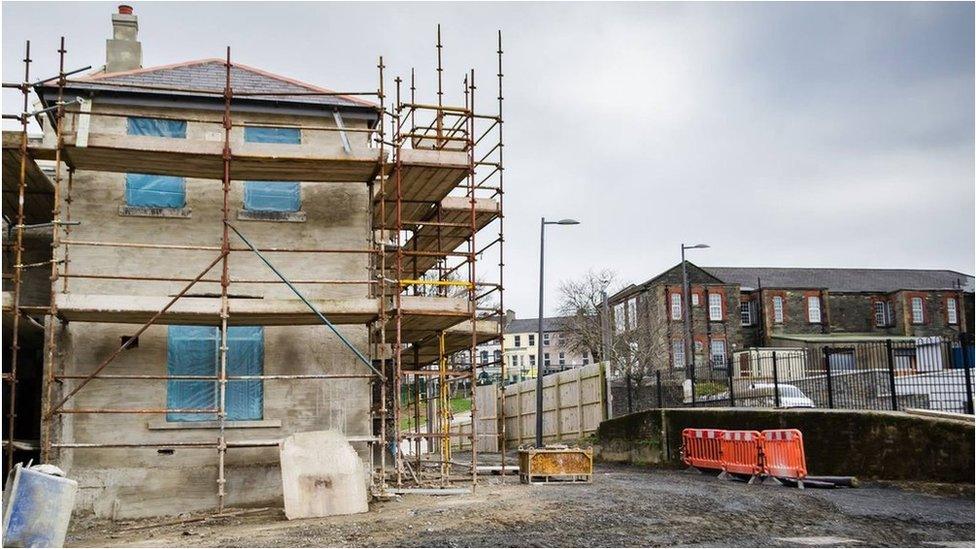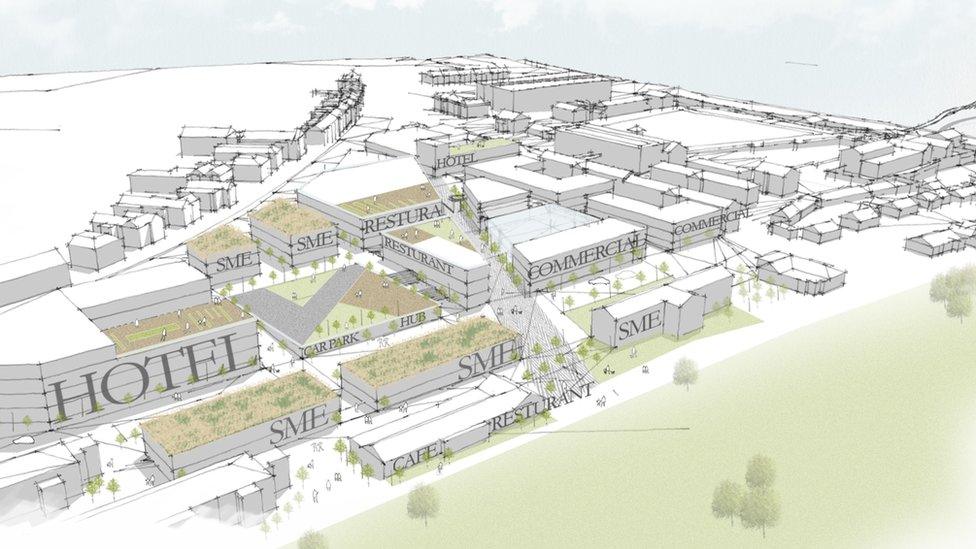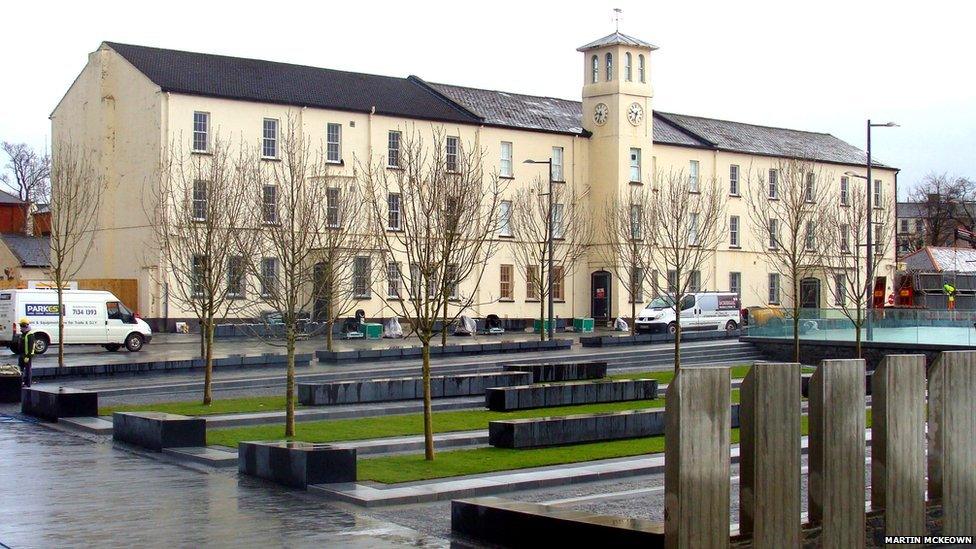Londonderry whiskey distillery plans scrapped
- Published

The distillery would have been the first whiskey distillery to open in Derry for nearly 200 years
Plans for a multi-million pound distillery and visitors centre in Londonderry will not go ahead, it has been confirmed.
The Quiet Man distillery project at Ebrington stalled last year when the company behind the proposals said it would no longer proceed.
It had been hoped another company would pick up the project.
However, councillors were notified on Tuesday the distillery project was no longer being pursued.
The Northern Ireland Executive Office told Derry City and Strabane District council's strategic planning committee that plans for a hotel, office space, café, restaurant and bar all remain on track for the Ebrington site.
An Executive Office spokeswoman told the BBC: "The buildings associated with the proposed distillery will be placed on the market during June 2019."

Plans for Ebrington as outlined when the site was granted planning permission in 2016
The distillery was seen as a key component of the regeneration of the former military site and would have been the first whiskey distillery to open in the city for nearly 200 years.
Work had been under way on the Quiet Man distillery at Ebrington since 2017, but in November 2018 the company behind the project, Niche Drinks, confirmed it would not proceed.
Sinn Féin MP Elisha McCallion said work to find a replacement company to take on the project had now fallen through.
"We now need now to ensure, as this building goes back on the market, that a new tenant can be found that will deliver a top-class facility in this site," she said.

Many of the buildings at the former army barracks have listed status
Ebrington is the largest regeneration site in Derry.
A former naval base that opened in 1841, it was known as HMS Sea Eagle during World War Two and was an important part of the North Atlantic Command.
The 29-acre site continued to operate as a military barracks until 2003.
- Published23 November 2018

- Published15 November 2017

- Published8 January 2016
